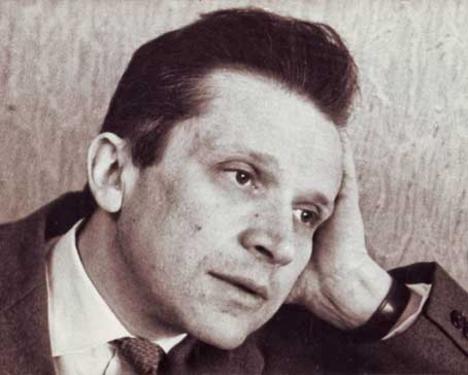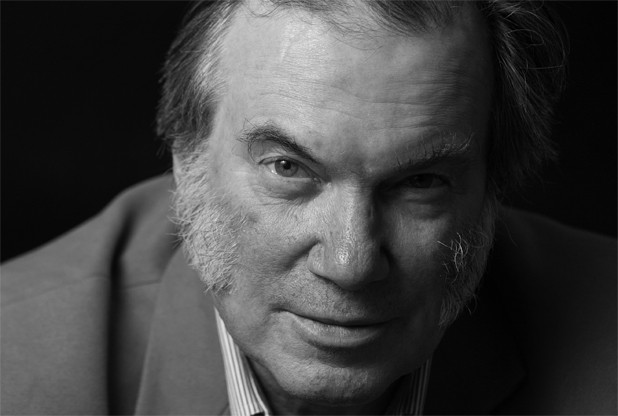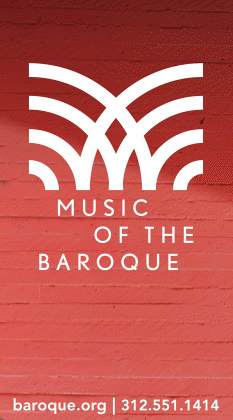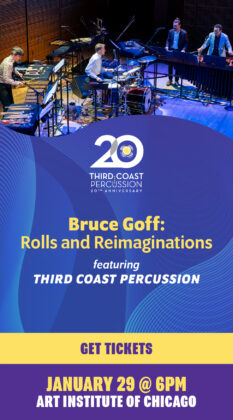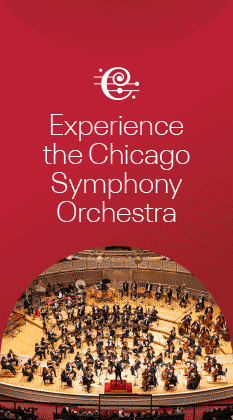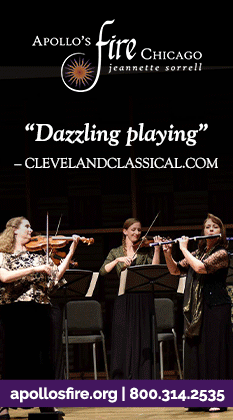After a long exile, Weinberg’s “Passenger” to arrive at Lyric Opera
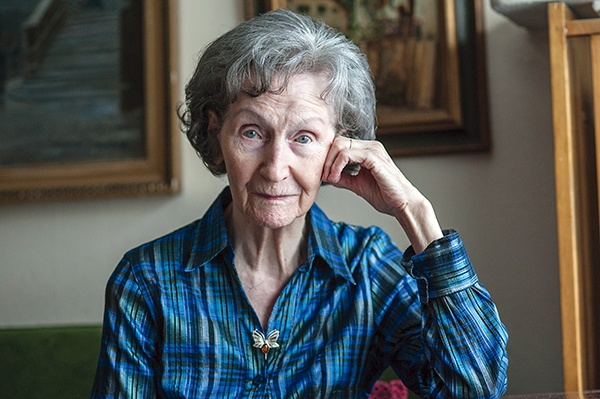
The spark came unexpectedly.
It was a sunny summer’s day in 1959 at the Place de la Concorde, one of Paris’ most imposing squares, along the River Seine. Zofia Posmysz, a Polish radio journalist in her mid-30s, was in Paris for a one-day junket. Polish Airlines had a newly established route between Warsaw and Paris, and Posmysz, who managed to survive deportation to the Auschwitz concentration camp in 1942, was onboard for an early trip.
“On the Place de la Concorde,” she explained in a recent e-mail, “there were crowds of tourists, most of them Germans. I heard that sharp voice, identical to that of Anne Lise Franz [an SS guard who dominated Posmysz’s life during her three years of captivity], I was in shock.”
But, when Posmysz “found enough courage” to pursue the woman, she discovered “it was not she…And then I started to think what I would do if I really met her.”
Later that year Posmysz wrote a radio play, The Passenger from Cabin Number 45, inspired by the incident and then worked it into a novel, The Passenger, published in 1962. For her story, Posmysz reversed the encounter. It’s set in the late 1950s, and a former Nazi guard, Liese, is sailing with her husband to Brazil where he will take up a diplomatic post. World War II has receded from the headlines, and her husband knows nothing of her past. Aboard ship, Liese thinks she sees Marta, a young Auschwitz inmate whom she thought was dead. She grapples with her own dark history as memories of Auschwitz surface.
Translated into 15 languages, the novel was made into a TV drama and a film. And on Feb. 24, Lyric Opera of Chicago presents The Passenger, an opera based on Posmysz’s novel by Polish composer Mieczyslaw Weinberg and Russian librettist Alexander Medvedev.
The opera has its own tangled history. Weinberg was Jewish, and as the Nazi took power in Poland in 1939, he fled to Russia, the only country open to him at the time. A prolific composer, he became close friends with Shostakovich, who suggested that Weinberg write an opera based on Posmysz’s novel. Working with Medvedev, Weinberg completed it in 1968 and its premiere was scheduled for the Bolshoi Theater in Moscow. But for unknown reasons that production never materialized, and later plans to stage it came to nothing. Weinberg died in 1996, ten years before The Passenger was finally presented, in a semi-staged production in Moscow.
British director David Pountney is responsible for bringing The Passenger to the operatic stage, in a critically acclaimed production for the 2010 Bregenz Festival in Austria. That production, which he is overseeing at Lyric, subsequently traveled to Poland, Britain, Houston and New York.
Pountney stumbled upon The Passenger purely by chance.
“It was a very banal route,” said Pountney during a rehearsal break at Lyric last week. He looked comfortably rumpled, though his pastel scarf was a dashing accent, and he spoke thoughtfully, with an occasional flash of wry wit. “When the Soviet Union collapsed, all those big Soviet [music] publishing houses were sold off and bought up by various Western predators. A portion of Weinberg’s work was bought by Peermusic, an American firm. In contrast to some of the other firms, they actually started doing something about his music.”
Promotional material from Peermusic about The Passenger landed on Pountney’s desk in 2007 or 2008.
“It just said, ‘Weinberg, an opera about Auschwitz, friend of Shostakovich,’ all the salient details,” said Pountney. “It lay under various piles of stuff on my desk for a while and was virtually on its way into the wastepaper basket, but then I thought, ‘Wait a minute. What is this?’ “
After some Google searching, Pountney discovered that Weinberg was a serious, prolific composer. “I encountered this vast repertoire,” he said, that included 22 symphonies, much chamber music and myriad film scores.
“Weinberg never had an official post,” said Pountney, “but he was played by all the major Soviet musicians.”
While staging an opera at the Bolshoi, Pountney visited Medvedev. One of the most striking elements of the Bregenz production is its two-level set. On top is the deck of a luxurious passenger ship outlined by gleaming white rails. Below is Auschwitz, a grim space with high gray walls and a pair of train tracks pointed toward the audience. According to Pountney, the idea for the set, strikingly executed for Bregenz by the late Johan Engels, was Medvedev’s.
“He very clearly described to me the layout of the design,” said Pountney. “He had a very clear spatial grasp of how the stage should be laid out. He’s a very, very intelligent librettist.”
Medvedev also used music to propel the drama in an unusual way.
“He had the very brilliant idea of making the conclusion of an opera a musical event,” said Pountney. “The violinist [Tadeusz, Marta’s fiancé] has been ordered to play the governor’s favorite waltz. Instead of doing so, he plays Bach’s Chaconne, thereby throwing in the face of the Nazis their own betrayal of their sublime cultural heritage. This musical device is the climax of the drama, which makes it a perfect operatic treatment. This wasn’t in the novel or the radio play. It was Medvedev’s idea; he’s a very clever man.”
Like Pountney, Sir Andrew Davis, Lyric’s music director who will conduct The Passenger, found Weinberg and his music to be uncharted territory.
“I knew not a note of it,” said Sir Andrew. “It was a complete unknown.”
Some of the music sounds like Shostakovich, he said, and there are touches that evoke Benjamin Britten, another composer at his peak in the 1960s when Weinberg composed The Passenger. Phrases can be angular, but Weinberg’s orchestration is full of imaginative touches.
“There’s beautiful use of orchestral color,” said Sir Andrew. “He uses the celesta very beautifully. The most impressive passages to me are the slow passages where the characters reveal their most profound and secret thoughts to each other. The love scene between Marta and Tadeusz is incredibly spare. Sometimes it’s just accompanied by first violins. A scene with Tadeusz has little else than a bass line. The still moments are extraordinary.”
The music can be angular, but Weinberg doesn’t rely on high-powered dissonance or ear-shattering volume.
“One of the amazing things about the whole piece,” said Pountney, “and this is an unusual operatic characteristic, is its restraint. It handles its whole subject with enormous restraint and delicacy. It avoids any kind of emotional grandstanding, which, in the face of this subject, would be embarrassing. Much as I admire Puccini, I don’t think we want to hear Puccini’s version of the subject.”
Lyric’s general director Anthony Freud, the son of Holocaust survivors, also was struck by the opera’s refusal to traffic in emotional theatrics. He was “completely blown away” by the 2010 Bregenz performances and arranged to bring the production to the Houston Grand Opera where he was general director before coming to Lyric in fall 2011.
“Probably because of my personal history, I come to works of art inspired by the Holocaust with a sense of cynicism,” he said. “Most works seem to me to be melodramatic or simplistic or sentimental. This seems to me to be one of the few works that is really mature and interesting in its reaction to the subject.
‘It deals with perpetrator and victim, the issue of guilt. It deals, above all, with the survival of the human spirit against impossible odds. One of the things I least expected from the performance but was profoundly moved by, was the lyricism in the score.”
Audiences respond to the real-life nightmare that Liese and Marta are living through, said Pountney.
“It’s about two girls who would have been 19 at the time, who are thrown into close contact with one another. They should have had a row about a boyfriend or discussed their homework together. They should have been in some college or university, but this particular university is called Auschwitz. The one girl is wearing the officer’s uniform, and the other is wearing the uniform of a concentration camp prisoner. There’s a very powerful human dimension to the story.”
The Passenger opens 7:30 p.m. Tuesday and runs through March 15. The cast includes Amanda Majeski as Marta, Daveda Karanas as Liese, Brandon Jovanovich as Walter, and Joshua Hopkins as Tadeusz. There are also several ancillary events planned around the opera. lyricopera.org; 312-827-5600.
Posted in Articles
